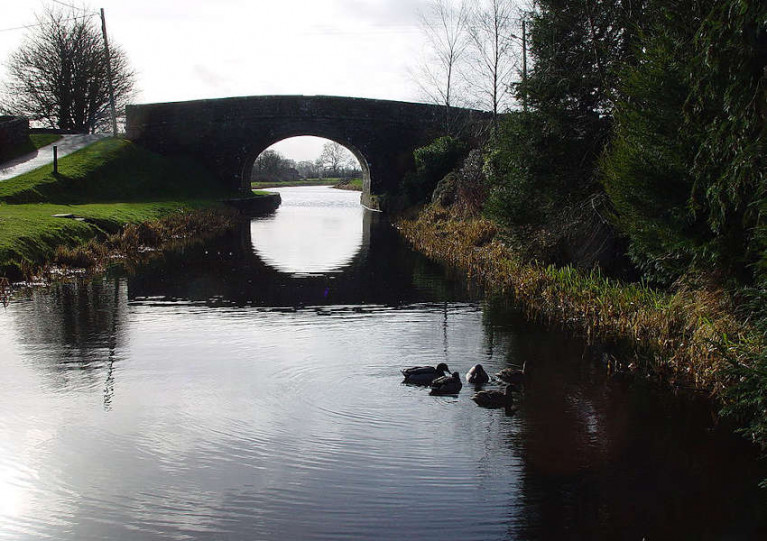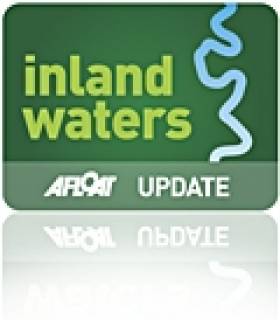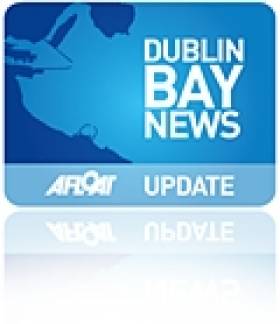Displaying items by tag: cycling
Annalise Murphy has begun a new pursuit in competitive road cycling in winning style with first place in the 43rd Des Hanlon Memorial, the first event of the Road National Series on Sunday (24 March).
As Cycling Ireland reports, the Olympic sailing silver medallist dictated the day in the women’s race throughout Co Carlow, joining a split in the last 30km that left last year’s winner Caoimhe O’Brien lagging behind.
Inside the final 15km, Murphy made her move to secure her first road win after a series of track victories for the experienced racer, who made road cycling part of her training regimen for the Laser Radial (now ILCA 6).
Following her win, Murphy, who races for Longcourt Hotel - NCW Wheelers, said: “It's a super tough race, I guess I had really good legs today and worked hard on the climbs to make sure everyone is working and attacking when I could.”
Cycling Ireland has more on the story HERE.
Construction Set to Begin on New Cycle and Pedestrian Bridge Across Shannon in Athlone
Construction of a new pedestrian and cycleway bridge across the Shannon Navigation in Athlone will commence on Tuesday 3 May, Waterways Ireland confirms.
The greenway bridge is funded from a €8.1 million allocation to the Galway-to-Dublin Greenway and will be built some 50 metres upstream of Athlone town bridge.
The navigation channel in the vicinity of the in-water works will be restricted to a width of 15 metres from 3 May. Both sides of the navigation channel will be buoyed with temporary makers.
Large barges, workboats and other equipment will be operating in the navigation from Wansboro’s field (upstream of the railway bridge) to Athlone town bridge.
Masters of vessels are advised to proceed with additional caution in the vicinity of the works and to follow the instructions of safety craft and personnel in the area.
Phase 1 of the project commencing in May involves the installation of a cofferdam which will take around four weeks to complete. Waterways Ireland says it will advise details of further phases in due course.
New Infrastructure for Waterways in €63M Greenways Funding Allocation
Refurbishment of the Longford Canal and the extension of the Grand Canal Greenway from Daingean to Edenderry are two of the projects that will be funded from a €63.5m allocation for greenways in 2021.
Transport Minister Eamon Ryan and Minister of State Hildegarde Naughton today (Monday 9 November) confirmed the funding for a range of greenways across the country.
Minister Ryan said the funding “is the highest single year amount ever allocated to greenways”.
“Indeed, it nearly equals the total amount originally allocated for the four years 2018-2021 (€53m) and shows the commitment of this Government to providing a step-change in the way in which we fund walking and cycling,” he said.
Among the inland waterways projects in the list is the €172,000 refurbishment of the Longford Canal spur of the Royal Canal, with improved infrastructure being provided along its cycleway.
In Co Offaly, €3.1 million has been allocated to fund the extension of the Grand Canal Greenway from Daingean to Edenderry, with another €1.66 million for the stretch between Daingean and Lough Boora, west of Tullamore.
“By the end of next year it will be possible to cycle the greenway the whole way from Edenderry to Lough Boora, over 50km worth of cycleway,” Minister Ryan said.
Minister Naughton added that a new greenway bridge across the River Shannon in Athlone would be funded from a €8.1 million allocation to the Galway-to-Dublin Greenway.
Minister Proposes Dublin-to-Galway Cycle Path Via Royal Canal
#ROYAL CANAL - The Royal Canal towpath is an "obvious candidate" for a stretch of the new cross-country cycle route from Dublin to Galway proposed by the Minister or Transport.
The Irish Times reports that Minister Leo Varadkar has instructed the National Transport Authority (NTA) to examine possible routes for the project, which would involve development of the present towpath along the waterway from Mullingar to Maynooth.
The NTA is already funding preparatory work with a view to upgrading the canal path as a premium quality Greenway Route for cyclists and pedestrians in the Fingal area from Ashtown to Westmanstown - and will now look at the feasibility of extending this project through Leixlip to Maynooth.
“A national off-road cycle trail would be a first for Ireland and would be a great tourism asset," said the minister, who added that the scheme has "the potential to bring in at least €15 million per annum, much of that going straight into local businesses along the route.”
Dublin Cycle Route Extension Put On Hold
The planned connection of Dublin's main coastal and canal cycling routes has been put on hold following "intensive lobbying", the Dublin Observer reports.
Planning permission had already been granted by Dublin Ciy Council for the completion of the €10m project to connect Portobello and the Grand Canal with East Wall Road via the Docklands.
But the council is now "re-evaluating" the section between Docklands and Fairview Park following complaints from East Wall residents, prompting the suspension of €4 million of funding by the Department of Transport.
Council officials and councillors have also apparently disagreed on what public consultation had happened with residents in the East Wall area regarding the cycle route.
Fine Gael Cllr Naoise Ó Muirí has argued that the "rationale for the strident opposition from within East Wall seemed pretty flimsy at best".
The Dublin Observer has more on the story HERE.































































